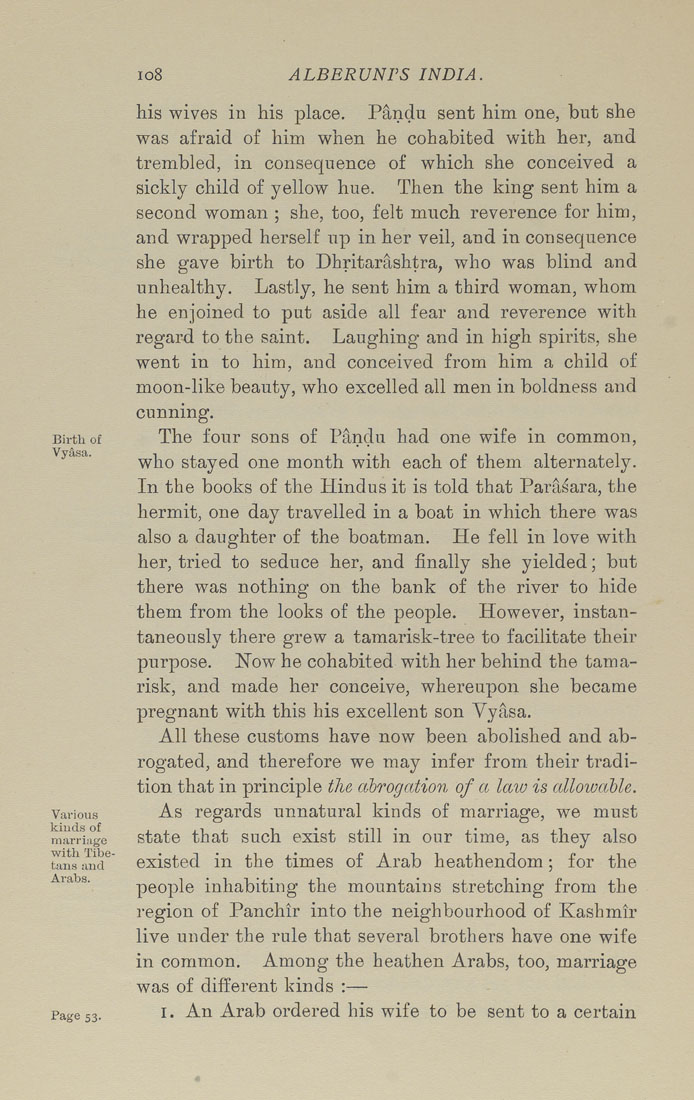Bīrūnī, Muḥammad ibn Aḥmad, Alberuni's India (v. 1)
(London : Kegan Paul, Trench, Trübner & Co., 1910.)
|
||
|
|
|
|
| Page 108 |

io8 ALBERUNPS INDIA. Birth of Vyasa. Various kinds of marriage with Tibe¬ tans and Arabs. Page 53. his wives in his place. Pandu sent him one, but she was afraid of him when he cohabited with her, and trembled, in consequence of which she conceived a sickly child of yellow hue. Then the king sent him a second woman ; she, too, felt much reverence for him, and wrapped herself up in her veil, and in consequence she gave birth to Dhritarashtra, who was blind and unhealthy. Lastly, he sent him a third woman, whom he enjoined to put aside all fear and reverence with regard to the saint. Laughing and in high spirits, she went in to him, and conceived from him a child of moon-like beauty, who excelled all men in boldness and cunning. The four sons of Pandu had one wife in common, who stayed one month with each of them alternately. In the books of the Hindus it is told that Parasara, the hermit, one day travelled in a boat in which there was also a daughter of the boatman. He fell in love with her, tried to seduce her, and finally she yielded; but there was nothing on the bank of the river to hide them from the looks of the people. However, instan¬ taneously there grew a tamarisk-tree to facilitate their purpose. Now he cohabited with her behind the tama¬ risk, and made her conceive, whereupon she became pregnant with this his excellent son Vyasa. All these customs have now been abolished and ab¬ rogated, and therefore we may infer from their tradi¬ tion that in principle the cohrogation of a laiv is cdlowahle. As regards unnatural kinds of marriage, we must state that such exist still in our time, as they also existed in the times of Arab heathendom; for the people inhabiting the mountains stretching from the region of Panchir into the neighbourhood of Kashmir live under the rule that several brothers have one wife in common. Among the heathen Arabs, too, marriage was of different kinds :— I. An Arab ordered his wife to be sent to a certain |
| Page 108 |







